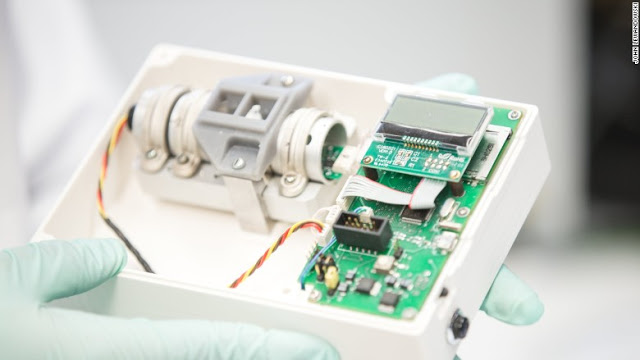John Lewandowski, a 26 year old PhD student in mechanical engineering at MIT, opined that early diagnosing is crucial.
“Early detection is very important, typically in the first five to seven days before symptoms arise, so that treatment can begin,” stated Lewandowski in an interview with CNNMoney.
He recently created a mechanical device RAM (Rapid Assessment of Malaria), that can detect malaria within five seconds from a drop of blood, with a motive of diagnosing malaria cheaply and quickly.
A great number of rural communities in Africa and Asia lack the medical infrastructure for conducting microscopic tests, and the diagnostic test which gives a positive or negative result can only detect malaria infection in the later stages.
Via Geek.ng
The RAM device which is made from low-cost materials can accurately detect the presence of malaria using Magneto-Optical Detection as early as a week before symptoms starts appearing. It is a battery-operated plastic box, costing about $100 to $120, and consists mainly of a small circuit board, a few magnets and a laser on the inside. Externally is an LCD screen, an SD card reader and a plastic disposable cuvette.
Disease Diagnostic Group, a company founded by Lewandowski is responsible for the production and distribution of the RAM. After carrying out clinical trials for the RAM device in India, tests results gave a 93% to 97% accuracy.
Lewandowski added that Nigerians should look forward to a new field trial this summer in which up to 5,000 patients will be tested. The exact dates and locations are yet to be disclosed.

















